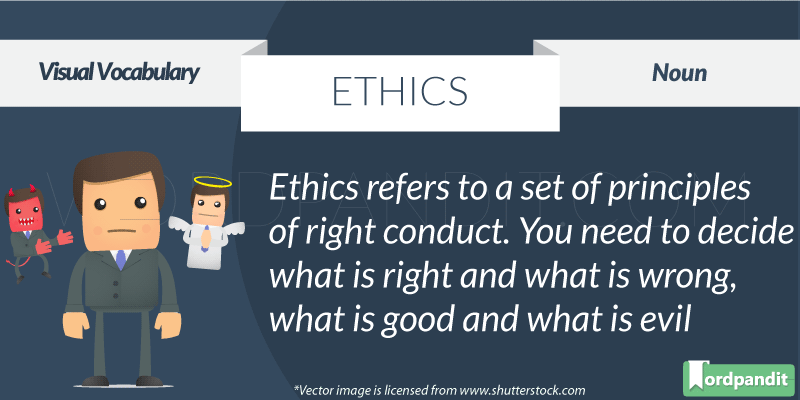Detailed Article for the Word “Ethics”
What is Ethics: Introduction
Imagine a compass that not only points north but guides our choices, illuminating the paths we take in life with questions of right and wrong, good and bad. This compass is “ethics,” a fundamental force that underpins society by shaping behavior, trust, and justice. Whether guiding doctors in patient care, helping businesses address environmental impacts, or influencing everyday interactions, ethics shapes how we engage with the world. In a fast-paced, globally connected era, ethics has become increasingly relevant as people and organizations strive to navigate complex moral landscapes with integrity.
Origin and History of the Word Ethics
The word “ethics” originates from the Greek word “ethikos,” which means “pertaining to character,” stemming from “ethos” or “character, custom.” Aristotle first used “ethikos” in his works on moral philosophy, establishing ethics as the study of virtue and character. The term entered English in the late Middle Ages, expanding beyond philosophical study to include codes of conduct. Over centuries, ethics evolved through religious, legal, and philosophical influences, reflecting society’s values. In modern times, ethics has developed into both an academic field and a practical framework, applied in areas like medical, environmental, and business ethics to guide decisions and actions toward a just and fair society.
Meaning and Definition of Ethics
Ethics (noun):
- The moral principles or guidelines that govern an individual’s or group’s behavior.
- A branch of philosophy dealing with the study of what is morally right or wrong, good or bad.
- A set of standards governing conduct within a profession, such as medical ethics or business ethics.
Usage note: Ethics often refers to both personal moral principles and the formalized codes that govern professional practices.
How to Pronounce Ethics
EH-thiks
How to Remember Ethics: Memory Tips
Think of “ethics” as your personal “ethos” or code, guiding what you consider right or wrong. Imagine ethics as a moral toolkit, similar to a compass or map that directs you through decisions, helping you stay aligned with values. Another memory aid is to associate ethics with the idea of “echoes” of character—actions echo who we are and what we stand for. This can help reinforce the connection between ethics and behavior.
Ethics in a Sentence: Examples and Usage
- Medical: Doctors follow a strict code of ethics that prioritizes patient well-being and confidentiality.
- Business: Many companies have adopted ethics policies to ensure transparency and responsibility in their operations.
- Environmental: Environmental ethics addresses humanity’s responsibility to protect and sustain natural ecosystems.
- Academic: Academic ethics discourage plagiarism and encourage intellectual honesty in research and writing.
- Personal: Her personal ethics prevented her from participating in any dishonest activities, even if no one was watching.
- Legal: Lawyers are bound by legal ethics that prohibit conflicts of interest and demand loyalty to their clients.
- Scientific: Ethics in scientific research require that studies respect subjects’ consent and avoid harm.
Difficulty Level of Using Ethics
Intermediate:
- Commonly used in professional, academic, and everyday contexts
- Clear primary meaning, though specific applications (e.g., business ethics) may vary by field
- Challenges may arise in interpreting ethics as either individual beliefs or formalized codes
Modern Usage of Ethics in Contemporary Context
In the 21st century, ethics has broadened to encompass new challenges, emerging across fields that address complex moral questions:
Technology and Data Privacy:
- Tech companies grapple with ethical issues around data privacy, AI biases, and user consent.
- With the rise of social media, ethical considerations about misinformation and online harm have intensified.
- Data ethics seeks to protect individuals’ rights in a landscape where personal information is constantly collected and used.
Environmental Ethics:
- Environmental ethics explores our responsibility toward preserving biodiversity and combating climate change.
- The field examines sustainability, questioning human impact on resources and ecosystems.
Corporate and Business Ethics:
- Companies are increasingly held accountable for ethical practices, from labor rights to environmental sustainability.
- Consumer demand for ethically produced products has led to new standards in supply chain management and fair trade.
Ethics today also has a significant role in:
- Healthcare, where bioethics addresses topics like genetic engineering, euthanasia, and patient autonomy
- Artificial intelligence, focusing on the ethical implications of autonomous systems and algorithmic transparency
- Education, where ethical guidelines govern academic honesty and fairness in teaching and research
As society becomes more interconnected and technologically advanced, the role of ethics in guiding actions, preserving trust, and promoting justice has become ever more critical. Ethics continues to provide a foundation for addressing emerging issues in a way that upholds humanity’s collective values and fosters a fair and responsible world.












Hi to all users. We are trying to form a community of Word-learners on Wordpandit. All of you are most welcome to post your suggestions, mnemonics, associations and so on for the given word. Let’s make this a group exercise in learning..:)
The success of this effort depends as much on you as it is on us. We hope our brilliant users will participate fully in this venture..:)